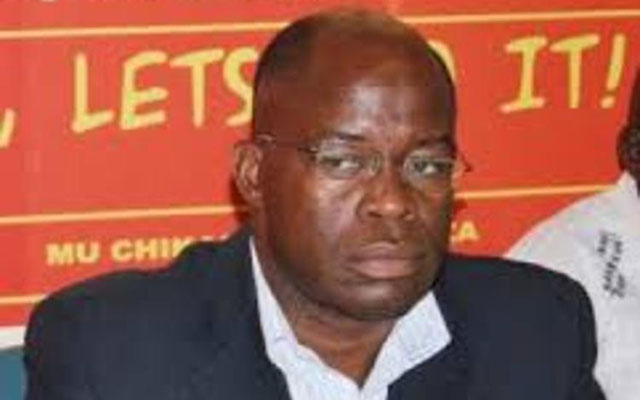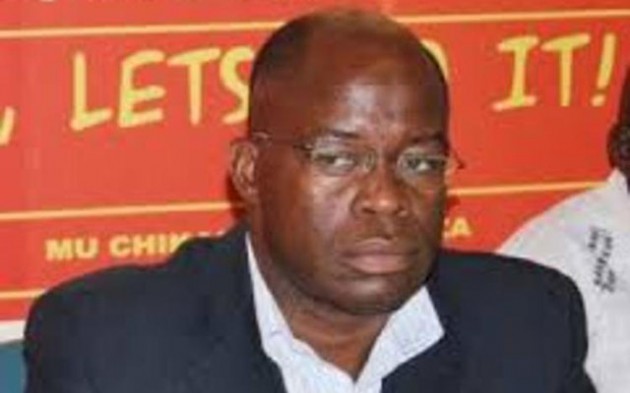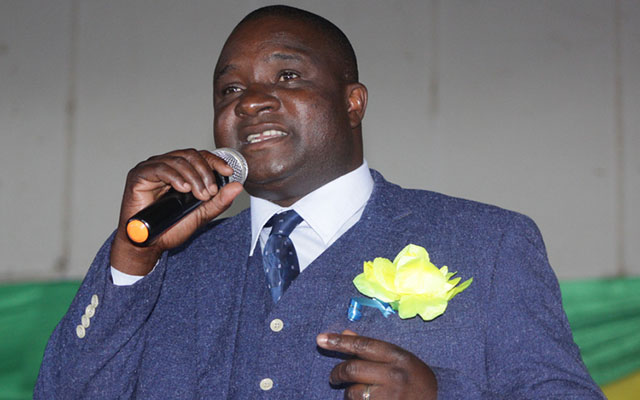Confrontational politics a perilous syndrome

Stephen Mpofu Correspondent
They pontificate to people in other countries while they themselves teeter on the verge of or stand still or shuttle in hot, ankle-deep ashes of peace and stability and economic development, by-products of tribal or religious fanaticism.
To be sure, these people ply their trade in the politics of confrontation, or stated more euphemistically, they are fundis in the holier-than-thou political realm.
Put simply, these opposition political groups are to be found in any democracy, but have on the African continent in particular, a penchant for besmirching even the best achievements of incumbent governments with in most cases no justification other than that they should be tramping around the corridors of power themselves even without a requisite methodology in running a government.
Take for instance the following examples of reactions by opposition political groupings to prevailing social and economic turmoil in various countries on the Africa continent where their often convoluted opinions expose these people for their pursuits of power-politics at any cost.
Consider the Democratic Republic of Congo where opposition to President Joseph Kabila’s continuation in power is likely to exacerbate the violence between supporters and opponents of the incumbent President if no solution is found to the political stalemate there soon enough.
The Assemblyman or opposition groupings want Kabila to go by end of this year whether or not elections to choose his successor take place. A spokesperson for the opposition denounced SADC, mentioning President Zuma by name and saying that he and other SADC leaders had no business calling on the opposition in the DRC during a recent SADC meeting in South Africa to hold their fire and urging them instead to find an amicable solution to festering conflict in that less active SADC member state.
Now here is an example of what can only pass as maniacal, power hunger by the opposition which does not seem to care how a void created by Kabila’s departure without elections to choose his successor would be filled.
Then comes Zambia, the DRC’s immediate neighbour to the south where the opposition United Party for National Development is embroiled in a conflict with the government of President Edgar Lungu, which it does not recognise after losing in elections a year ago.
Charles Kakoma, a spokesperson for the UPND also criticised SADC’s call for the Zambian opposition to demonstrate a willingness for an amicable solution to a political impasse in a country that hosted and supported the armed struggle by almost all liberation movements now in power in southern Africa, and bore the brunt of the vengeance by racist regimes fighting back to deny blacks independence and self-determination.
Kakoma claimed, that elections in Zambia, which put Mr Lungu in power as well as the harmonised elections in Zimbabwe in 2013, were “rigged” and that SADC had done nothing in both cases in response to his alleged fraudulent acts.
Now if Kakoma’s outrageous claim especially in respect to the last harmonised elections in this country is not a patent example of opposition political party balderdash, one wonders what is.
As every knowledgeable person in this region knows, the elections in Zimbabwe were observed by representatives of SADC, the African Union, the European Union as well as by other international monitors.
Surely, Kakoma should demonstrate better political acumen and insight if his representation of the opposition party in Zambia has to be taken seriously by anyone.
In any case, why did not his party go to court to protest if it had genuine evidence that elections were stolen from the UNDP?
Not recognising Mr Lungu’s presidency will not solve political confusion in Zambia.
On the contrary, it might promote hatred or even tribal fanaticism as a barrier to Zambia’s founding president and stalwart of the liberation movement in southern Africa, Dr Kenneth Kaunda’s rallying One Zambia, one nation for unity call.
Or are the people of this region and Africa as a whole not being treated to a case of “sour grapes” by the Zambian opposition’s refusal to recognise Mr Lungu and his government because the UNDP was beaten hands down at the polls by the ruling party?
Habitual, confrontational or holier-than-thou politics serve as Trojan horses for the external forces of destabilisation and should be eschewed in favour of dialogical communication between and among opposition and ruling political parties to come up with solutions that promote a climate of peace and stability which alone is conducive to social, political and economic development that will usher Africa into a brave new future.
In any case, why is there a growing tendency for people in conflict thumbing their noses at the round table when in more cases than not the same people always end up around the negotiating table to resolve their problems?
Political parties that lose elections should not behave like religious fanatical groups that have resorted to violence elsewhere in Africa and in the Middle East, bringing development to a virtual standstill, not to mention losses of innocent lives resulting from battles for power for its own sake.
Add to the self-destruct violent tendencies arising from such tribal politics as have brought Africa’s newest independent state, South Sudan, to virtual ruin.
In retrospect, one hopes that the elections in Angola this week and which saw the MPLA again trouncing opposition parties in its 38-year rule will not spark violent protests by the opposition with catastrophic consequences for a country that said no to election observers from outside the African continent, saying instead that the AU and SADC would observe the polls.
At home, President Mugabe, Church and other leaders have made impassioned pleas for peace in the run-up to this country’s harmonised elections next year.
In casting their ballots voters should be guided by the track records of political parties vis-à-vis peace, stability and national development, and not be persuaded or swayed by external forces with their own axes to grind against Zanu (PF) in power since 1980 following a protracted armed struggle in which gallant sons and daughters gave their lives as sacrifices for a reunion with their motherland — a thing over which imperialists still fume and seek regime change to resurrect their hegemonic influence.








Comments